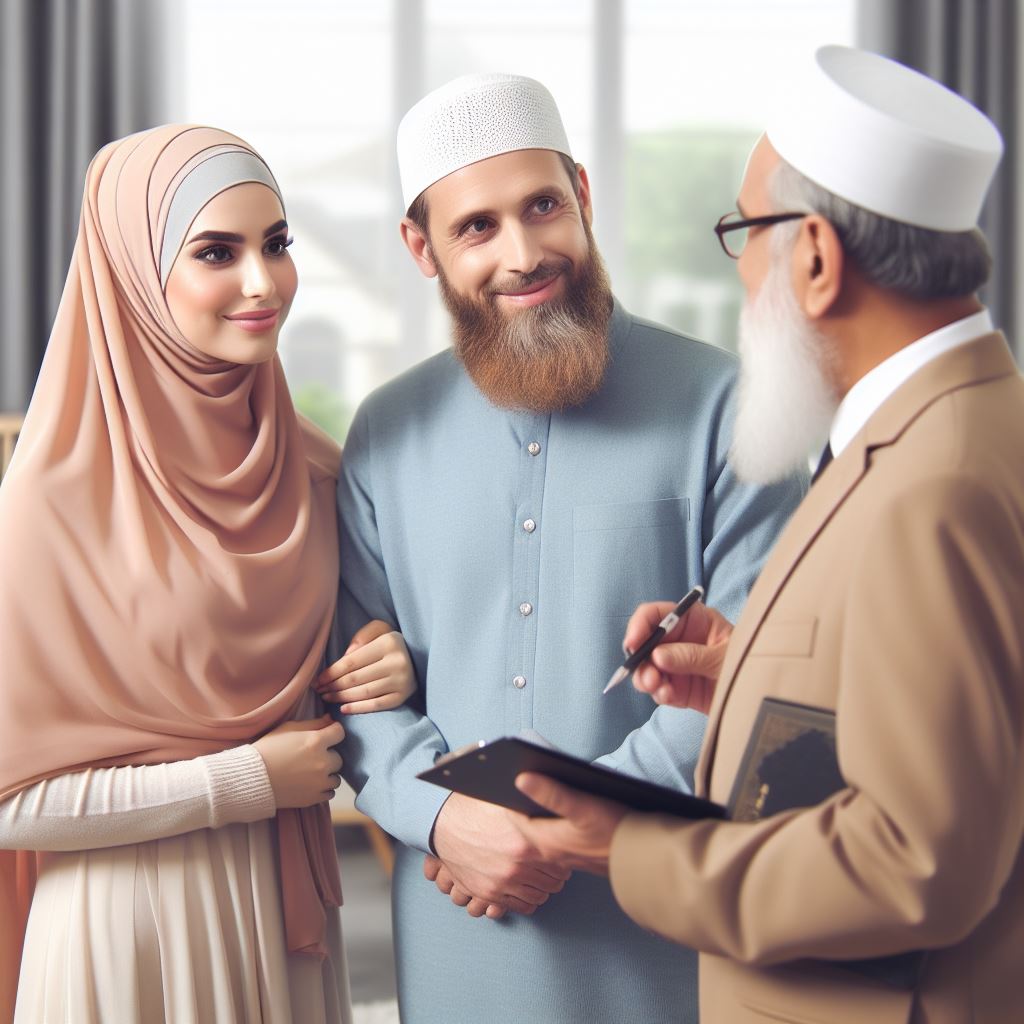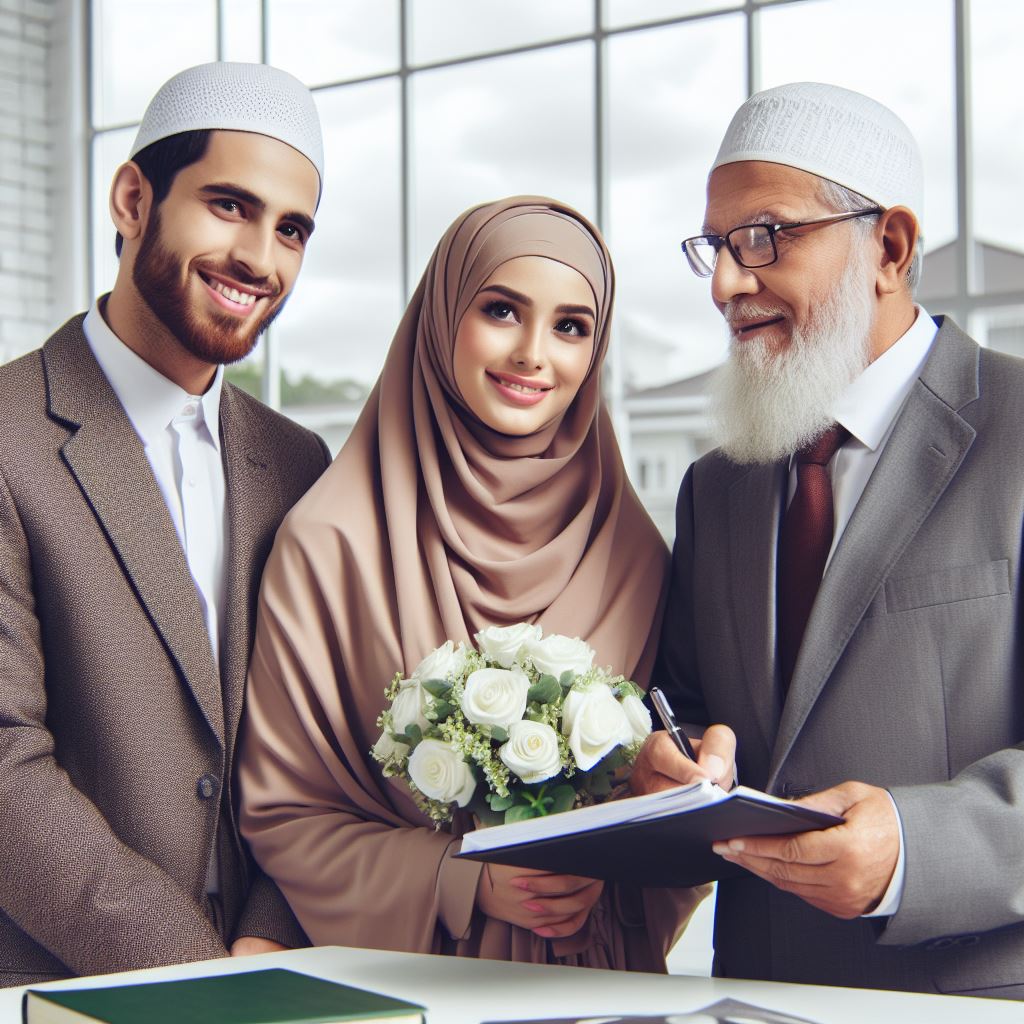Enhancing Intimacy
Marriage is a profound commitment that thrives on mutual love, respect, and understanding. In the Muslim community, where marriage represents not just a union of two hearts but also a sacred bond blessed by faith, the journey isn’t always smooth.
Have you ever felt that despite your best efforts, the intimacy and connection you once cherished seemed to be fading? You’re not alone. Many couples face this challenge, particularly in communities with high spiritual and social expectations. This is where the gentle guidance of marriage coaching can make a significant difference, offering you a pathway to restore and truly enhance and deepen your relationship.
Understanding Marriage Coaching
Marriage coaching is a specialized service designed to help couples navigate the complexities of married life. Unlike counseling, which often addresses specific psychological issues, marriage coaching focuses on setting goals, fostering communication, and developing a growth-oriented mindset in relationships. Muslim marriage coaches bring the additional benefit of understanding Islamic marital principles, making them particularly valuable to Muslim couples.

Challenges Faced by Muslim Couples
Many Muslim couples face unique challenges that stem from a blend of cultural expectations and religious obligations. Issues such as balancing family expectations, managing financial responsibilities, and navigating different cultural backgrounds can strain a marriage. Recognizing these challenges is the first step toward addressing them effectively.
Here are some additional intricacies that Muslim couples may encounter:
- Inter-generational Dynamics: Often, multiple generations live under one roof or significantly influence life decisions, which can lead to conflicts between maintaining tradition and embracing modern relationship roles.
- Religious Practice Variations: Differences in the level of religious observance or interpretation of religious teachings between spouses can create tension, especially when deciding how to raise children or manage household responsibilities.
- Social and Peer Pressure: The expectations to conform to societal norms and peer groups can put unnecessary stress on a marriage, pushing couples to meet unrealistic standards for success, hospitality, or familial roles.
- Migration and Adaptation Challenges: For couples who have migrated, adapting to a new culture while trying to preserve their original identity can be demanding. This might include language barriers, differences in social norms, or discrimination.
- Economic Pressure: Economic stability is a significant concern for many, and the pressure to provide for immediate family and sometimes extended family can be overwhelming.
- Communication Barriers: Language differences, particularly in marriages where partners come from different ethnic backgrounds or simply different communication styles, can lead to misunderstandings and frustrations.
The Role of Muslim Marriage Coaches
Muslim marriage coaches are well-versed in Islamic teachings and can guide couples through their issues within the framework of their faith. These coaches provide more than just advice; they offer a sympathetic ear and tailored solutions that respect religious guidelines and personal circumstances. Success stories from various coaching programs often highlight significant marital satisfaction and improvements in emotional closeness.
Benefits of Marriage Coaching
➡️ Enhanced Communication
Effective communication is the cornerstone of intimacy. Coaches equip couples with tools to enhance their ability to listen actively and express themselves clearly, which can transform the dynamics of a relationship.
➡️ Conflict Resolution
Marriage coaching teaches couples how to manage disagreements constructively without resentment or anger. Learning these skills is crucial for maintaining a healthy emotional climate at home.
➡️ Strengthening Emotional Bonds
Trust and emotional intimacy are the rewards of persistent communication and conflict resolution efforts. Coaches often recommend specific activities designed to rebuild trust and deepen emotional connections.
➡️ Spiritual and Religious Growth
For many Muslim couples, shared spiritual beliefs are central to marital happiness. Coaches specializing in Muslim marriage can guide couples on how to use their faith to bolster their relationship, encouraging practices that bring them closer to each other and their spiritual beliefs.
➡️ Personal Development and Self-Awareness
Marriage coaching also focuses on individual growth, which can positively impact the relationship. Coaches encourage individuals to pursue personal and mutual goals, which fosters a sense of partnership and mutual support.
➡️ Planning for the Future
Setting long-term goals as a couple can be inspiring and motivational. Marriage coaching helps couples envision their future together and plan practical steps to achieve their dreams, ensuring ongoing intimacy and mutual fulfillment.
➡️ Finding the Right Coach
Remember, choosing the right coach is pivotal. Couples should seek coaches who are skilled in relationship dynamics and sensitive to the nuances of Islamic teachings and cultural considerations. It’s essential to select someone who understands the unique aspects of your relationship and respects and incorporates your spiritual and cultural values into their coaching methods.
If you’re ready to take the next step towards a more fulfilling marital life, consider exploring the options available at Ihsan Coaching. We offer expert marital coaching tailored to the needs of Muslim couples, helping you navigate the complexities of your relationship through faith-based principles.

Conclusion
Marriage coaching offers a promising avenue for Muslim couples seeking to enhance their intimacy and overall relationship quality. With the guidance of a knowledgeable Muslim marriage coach, couples can enjoy deeper emotional connections, improved communication, and a more fulfilling marriage. This holistic approach addresses immediate issues and lays the groundwork for long-term happiness and mutual growth.
FAQs
How does marriage coaching differ from marriage counseling?
Marriage coaching focuses on enhancing relationships by improving communication, setting goals, and fostering personal and mutual growth. It’s action-oriented and often deals with the future of the relationship. In contrast, marriage counseling typically addresses specific psychological issues or conflicts and may delve into past events or behaviors to provide healing and resolution.
Can marriage coaching be beneficial for newlyweds?
Absolutely! Marriage coaching can be incredibly beneficial for newlyweds as it helps set a strong foundation for their relationship. Early coaching can equip couples with effective communication tools, conflict-resolution strategies, and mutual goal-setting techniques, all of which can prevent the development of unhealthy patterns that could emerge later in the marriage.
What are common signs a couple might benefit from marriage coaching?
Common signs include frequent misunderstandings, feelings of disconnect or dissatisfaction, repetitive arguments about the same issues, difficulty balancing personal and joint goals, and challenges adapting to life changes together. If couples feel they are not reaching their full potential together, marriage coaching might be beneficial.
How long does a typical marriage coaching program last?
The duration of a marriage coaching program can vary widely depending on the couple’s needs, goals, and the complexity of the issues they are addressing. Programs can range from a few sessions to several months. Often, coaches will recommend starting with a set number of sessions and then adjusting as needed.
Is marriage coaching confidential?
Yes, marriage coaching is confidential. Coaches adhere to strict confidentiality agreements to ensure that all discussions, issues, and successes remain private. This fosters a safe space for couples to openly discuss their feelings and thoughts.
How often should couples meet with a marriage coach?
The frequency of meetings can depend on several factors, including the couple’s schedule, the intensity of the issues being addressed, and their progress. Many coaches suggest starting with weekly sessions to build momentum and then adjusting the frequency as the couple progresses. Regular check-ins are beneficial to maintain gains and support continuous improvement.

